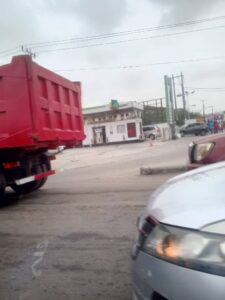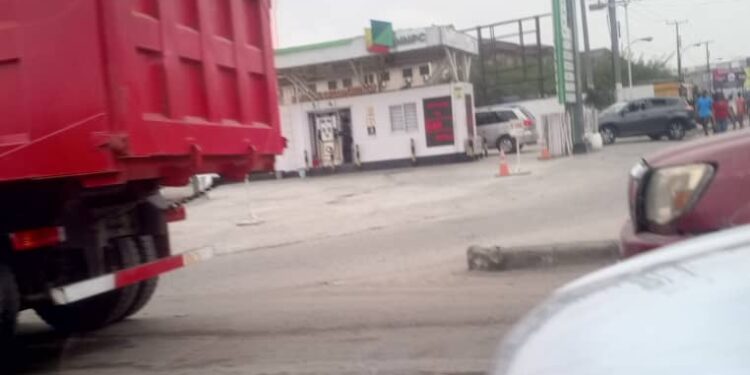
By Ibrahim Kegbegbe
Lagos, Nigeria – Sunday, October 5, 2025
There was palpable tension across Lagos State on Sunday as the price of cooking gas — once sold at ₦1,000 per kilogram — skyrocketed to ₦2,000, sparking frustration among households and small business owners who rely on the commodity for daily use.
Reports reaching The Merit Newspaper from various parts of Lagos, including Epe, Orile, and Amukoko, revealed that several gas stations had run out of supply as of Sunday evening, forcing residents to move from one location to another in search of the essential product.
A resident of Epe, Mrs. Adenike Oladun, who spoke to The Merit Newspaper around 7 p.m., lamented that all filling stations in her area had shut down their gas sections.
“There’s no gas anywhere in Epe. Even the small local sellers have run out of stock. I have been to three different stations today — they all said their suppliers have not delivered,” she said.
In Orile and Amukoko, residents reported a different but equally troubling scenario. The few stations that still had gas were reportedly overwhelmed by long queues of desperate customers.
“I finally found gas at a station in Amukoko, but it was ₦2,000 per kilogram,” said Mr. Sunday Adegoke, a commercial food vendor. “People were struggling just to fill small cylinders. I had to wait more than two hours.”
The sharp rise in price and sudden scarcity have raised fresh concerns about the country’s worsening energy crisis. Many Nigerians fear that the situation could further burden already struggling families amid rising food and transportation costs.
An LPG (Liquefied Petroleum Gas) retailer who preferred anonymity told The Merit Newspaper that the latest increase was due to supply shortages and high import costs.
“Most of our suppliers are complaining about dollar rates and import duties. The landing cost has gone up significantly, and that’s why the retail price is now double,” the source explained.
Meanwhile, consumer rights advocates have called on the federal government to intervene urgently to stabilize the market and prevent exploitation.
READ ALSO:Ajadi Rescue Movement Reaffirms Unity and Youth Empowerment in Taraba
Economic analysts say the situation underscores Nigeria’s heavy dependence on imported gas, despite having abundant natural gas reserves. They urge the federal government to fast-track domestic gas processing and distribution infrastructure to reduce volatility in pricing.
READ ALSO:Victor Osimhen’s Rage Exposes Europe’s Racism in Football
As of the time of filing this report, the Nigerian Midstream and Downstream Petroleum Regulatory Authority (NMDPRA) had not issued an official statement on the cause of the sudden spike or possible measures to address it.

















